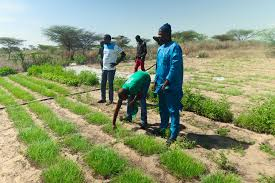African agriculture is the backbone of many economies, providing livelihoods for millions of people. However, the sector faces numerous challenges, including limited access to markets, finance, and technology. Cooperative and organizational applications have emerged as a vital strategy to address these challenges and promote sustainable agricultural development in Africa.
What are Cooperatives?
Cooperatives are member-owned businesses that operate for the benefit of their members. In agriculture, cooperatives can take various forms, including:
- Producer Cooperatives: Farmers come together to pool their resources, share knowledge, and negotiate better prices for their products.
- Marketing Cooperatives: Farmers jointly market their products, improving their bargaining power and access to markets.
- Service Cooperatives: Members share resources, such as equipment, expertise, and infrastructure, to reduce costs and improve efficiency.
Benefits of Cooperatives in African Agriculture
Cooperatives offer numerous benefits to African farmers, including:
- Improved Market Access: Cooperatives enable farmers to negotiate better prices, access new markets, and reduce transaction costs.
- Increased Bargaining Power: Collective action empowers farmers to negotiate with buyers, suppliers, and policymakers.
- Shared Resources: Cooperatives facilitate the sharing of resources, such as equipment, expertise, and infrastructure, reducing costs and improving efficiency.
- Knowledge Sharing: Cooperatives provide a platform for farmers to share knowledge, best practices, and innovative ideas.
- Financial Inclusion: Cooperatives can provide access to financial services, such as savings, credit, and insurance.
Organizational Applications in African Agriculture
In addition to cooperatives, other organizational applications have emerged to support African agriculture, including:
- Farmer-Based Organizations (FBOs): FBOs are member-driven organizations that represent farmers’ interests and advocate for their needs.
- Agricultural Cooperatives Associations: These associations provide support services, such as training, advocacy, and policy influence, to cooperatives.
- Value Chain Organizations: These organizations bring together stakeholders across the value chain to improve efficiency, quality, and profitability.
Examples of Successful Cooperatives and Organizational Applications in Africa
- Kenya’s Coffee Cooperatives: Kenya’s coffee cooperatives have improved the livelihoods of smallholder farmers by providing access to markets, finance, and technical assistance.
- Ghana’s Cocoa Cooperatives: Ghana’s cocoa cooperatives have enabled farmers to negotiate better prices, improve quality, and increase their bargaining power.
- Rwanda’s Agricultural Cooperatives: Rwanda’s agricultural cooperatives have promoted sustainable agriculture practices, improved market access, and increased farmers’ incomes.
Challenges and Opportunities
While cooperatives and organizational applications have shown promise in African agriculture, challenges persist, including:
- Limited Capacity: Many cooperatives and organizations lack the capacity, resources, and expertise to effectively support farmers.
- Policy and Regulatory Frameworks: Weak policy and regulatory frameworks can hinder the growth and development of cooperatives and organizations.
- Access to Finance: Cooperatives and organizations often face challenges in accessing finance to support their activities.
Conclusion
Cooperative and organizational applications have the potential to transform African agriculture by improving market access, increasing bargaining power, and promoting sustainable practices. To realize this potential, it is essential to:
- Strengthen Capacity: Build the capacity of cooperatives and organizations to effectively support farmers.
- Improve Policy and Regulatory Frameworks: Develop policies and regulations that support the growth and development of cooperatives and organizations.
- Increase Access to Finance: Provide access to finance and financial services to cooperatives and organizations.
By harnessing the power of cooperatives and organizational applications, African agriculture can become more sustainable, equitable, and prosperous for all

